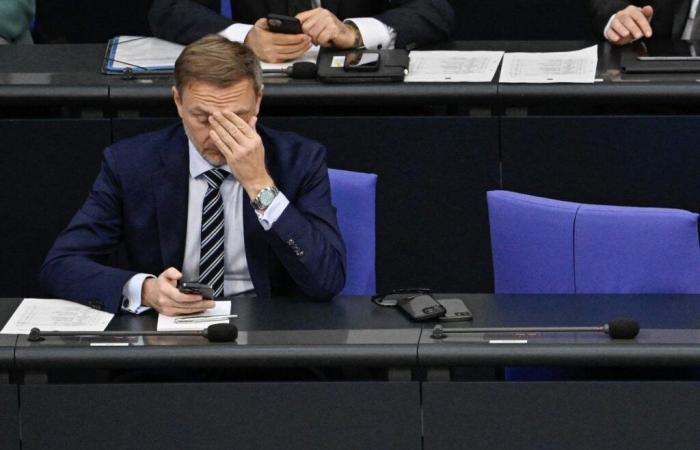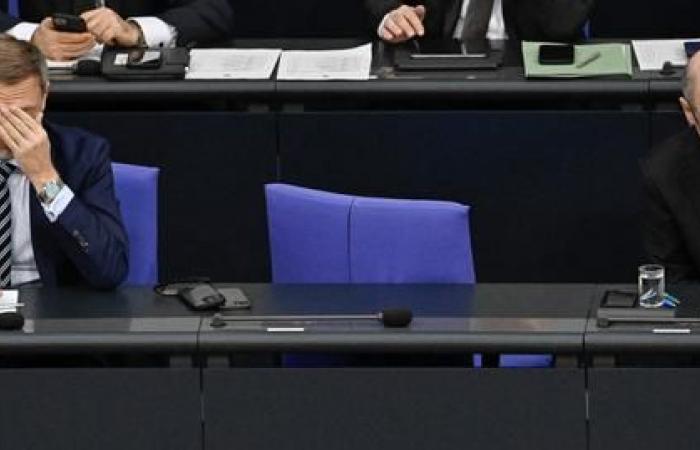Olaf Scholz brought together the tenors of his coalition in the hope of preventing the German government from collapsing “at the worst time”. He finally had to resolve to part ways with one of the key members of the executive. The German Chancellor has dismissed his Finance Minister Christian Lindner (FDP, liberal right), a spokesperson announced on the evening of Wednesday, November 6.
Olf Scholz made this decision while Christian Lindner, also president of the FDP, proposed, according to several media, during this crisis meeting the calling of early legislative elections in early 2025. A way of responding to blockages on economic policy in lead between his movement, the social democrats and the environmentalists, all members of the tripartite government coalition.
The fate of the coalition made up of Mr. Scholz's social democrats (SPD), environmentalists and liberals (FDP) hangs by a thread after months of quarrels over the economic and budgetary course to give to Germany , on the verge of recession. It was to remedy this that the leaders of the majority found themselves at the chancellery where they had to spend part of the night, without certainty of being able to announce an outcome.
The vice-chancellor and green economy minister, Robert Habeck, had previously urged all partners to come to their senses, emphasizing that with Trump's return to power, “the government must be fully capable of acting”. “This is the worst time for the government to fail”he estimated at the start of the week.
Read also | Article reserved for our subscribers US presidential election: Germany fears it has a lot to lose with Donald Trump's victory
Read later
“Autumn of decisions”
Coalition ruptures are very rare in Germany and Olaf Scholz hopes to lead his until the next legislative elections scheduled for September 28, 2025. But the gap between the coalition parties has become more evident in recent days, with the flight of a document from the Minister of Finance, Christian Lindner, whose proposals for a “economic turning point” Liberals go against the centrist line hitherto followed by the government.
Disagreements focus on solutions to revive Europe's largest economy. Olaf Scholz's social democrats are trying to preserve their social priorities; Robert Habeck's Greens are pushing to fight climate change despite the costs of the transition while the liberals are stubbornly focused on respecting Germany's drastic constitutional limits on budget deficits and debt.
Christian Lindner also called for the end of a “solidarity tax” established in 1991, initially to finance the cost of the Reunification of Germany, and the abandonment by his country of its climate objectives which were more ambitious than those set by the European Union. He described the current period as“autumn of decisions”suggesting that his party could leave the coalition if it did not win its case.
Read also | Article reserved for our subscribers In Germany, the deterioration of the economy puts Olaf Scholz's coalition to the test
Read later
Before the meeting, analyst Carsten Brzeski of ING bank estimated that “The German government has just entered the new phase of a slow-burning political crisis that could be the last step before the final collapse of the governing coalition”.







